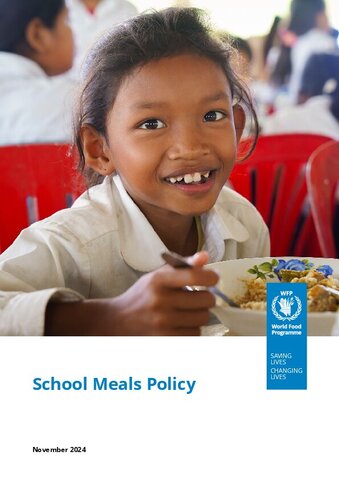
The WFP’s School Meals Policy updates the 2013 version, highlighting the transformative potential of national school meal programmes in addressing critical global challenges. This includes helping children be healthier and learn better, fostering sustainable development and food system reform. The policy reflects 60 years of WFP experience, during which 50 countries transitioned to self-reliant programmes. It emphasizes the role of the School Meals Coalition in advancing global efforts, with over 100 Member States and over 130 partners committed to ensuring every child receives a daily nutritious meal by 2030.
Key strategic shifts outlined in the policy include strengthening partnerships with governments, sharpening advocacy, and improving programme delivery to align with national priorities and climate-smart approaches. Notably, between 2020 and 2022, countries expanded programmes to reach 418 million children daily, with 98 per cent of costs covered by domestic budgets. However, significant disparities remain, particularly in low-income countries, underscoring the need for innovative financing and capacity-building to achieve universal coverage.
